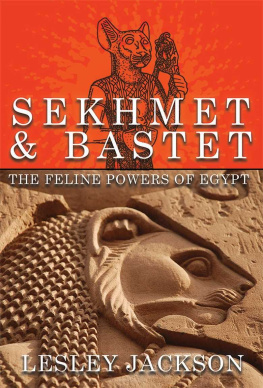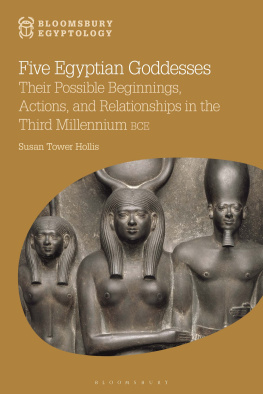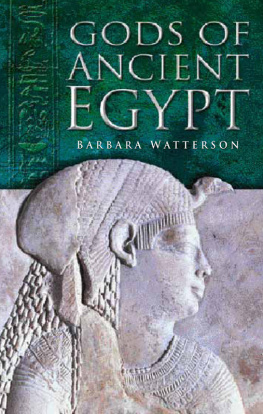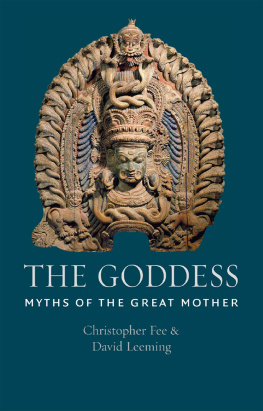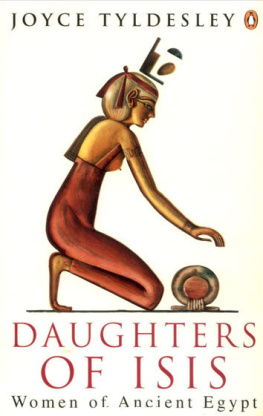ISIS
THE ETERNAL GODDESS OF EGYPT AND ROME
Table of Contents
ISIS
THE ETERNAL GODDESS
OF EGYPT AND ROME
LESLEY JACKSON

Published by Avalonia
Published by Avalonia
BM Avalonia, London, WC1N 3XX, England, UK
ISIS - THE ETERNAL GODDESS OF EGYPT AND ROME
Lesley Jackson, 2016
All rights reserved.
First Published by Avalonia, December 2016
This Kindle edition January 2017
Typeset and design by Satori
Cover image: Winged Isis, Brian Andrews 2016 and Phot o Lui, Tat Mun/Shutterstock.com
Illustrations by Brian Andrews 2016.
British Library Cataloguing in Publication Data. A catalogue record for this book is available from the British Library.
This book is sold subject to the condition that no part of it may be reproduced or utilised in any form or by any means, electronic or mechanical, including photocopying, microfilm, recording, or by any information storage and retrieval system, or used in another book, without written permission from the author.
DEDICATION
This book is dedicated to the Two Sisters, Isis and Nephthys,
and also to Sue and Mia.
Biography
Lesley Jackson has always had an interest in, and a yearning for, the mysterious geographical, be it lost worlds, otherworlds or the sacred places of this world. A career in IT was merely a logical faade. Many years of involvement in the local archaeological society deepened her interest in ancient cultures and their religions.
Since being blessed with early retirement, Lesley has devoted much of her time to researching and writing about early religion and mythology. Ancient Egypt is an enduring passion, but other paths are always beckoning from around the misty hills. She is the author of Thoth: The History of the Ancient Egyptian God of Wisdom (Avalonia, 2011) and Hathor: A Reintroduction to an Ancient Egyptian Goddess (Avalonia, 2013).
She lives in the remote East Riding with a tolerant husband and an ever increasing volume of books and rocks. Any remaining spare time is spent travelling or baking and making chocolates.
Acknowledgements
No study of Egyptian religion would be possible without access to their writings. I am indebted to all of those who have studied these ancient languages and have provided translations for the rest of us to use.
I would like to thank the British Library, the Egyptian Exploration Society, and the University of Hull for the use of their libraries.
Quotes are included with permission of the following:
J F Borghouts Ancient Egyptian Magical Texts E J Brill 1978. Koninklijke Brill N.V.
R O Faulkner The Ancient Egyptian Coffin Texts Aris & Phillips 2007.
Chapter 1
Introducing Isis
Who are you? they say to me. What is your name? they say to me.
Defining the Indefinable
Isis is one of the best known of the Egyptian goddesses and so is quite hard to introduce. How do you summarise an All-Goddess? I originally titled this chapter Defining Isis but quickly realised that was somewhat optimistic. There are a number of questions and themes running through this book but before we can attempt to understand Isis we need to get to know her in more depth. The worship of Isis spans many millennia and Isis in the Old Kingdom was very different to Isis at the end of the Greco-Roman Period; in what follows, I have tried to illustrate how she changes.
When we are getting to know someone there tends to be a standard set of questions we ask directly or try to ascertain; what is your name, where are you from, what do you do, what is your status and how do you relate to other people? Most of us define ourselves in the same way. As with anyone, it is possible to define Isis both by her attributes (such as Magician) and by her relationships (as the wife of Osiris).
Isis was originally significant because of her relationships with others, namely Osiris and Horus, and she is probably most revered as a loving wife and devoted mother. She also has a very close bond with her sister Nephthys but these are not her only partnerships. Relationships are very important to Isis and this may be why it was so easy for her to absorb other goddesses as she began to grow into the All-Goddess of the Greco-Roman Period. One of the questions that I am interested in is whether Isis is still the same Isis that came from the Old Kingdom or whether Isis has become the Great Mother Goddess who was with us in the very beginning. The interconnectedness of all life is central to the concept of the Great Mother and Isis becomes increasingly connected through her relationships with the other deities and her assimilation of other goddesses.
Many deities are strongly associated with specific aspects of life or the personification of places or concepts. It is too clumsy to classify a major deity by reference to one of their many aspects but looking at attributes is a way of getting to appreciate them and understand them a bit more. I will investigate the various aspects of Isis and these change considerably over time. Originally Isis was connected with royalty and not with any part of the cosmos but her role in the Osiris myths linked her to events which were of cosmic significance. As the cult of Isis and Osiris grew so did her importance and her aspects started to diversify. The Greco-Roman Isis kept all of her Egyptian powers and added more from the strong Greek influence in Egypt, particularly in the Delta region. She eventually becomes a beneficial Goddess of nature, a Saviour and, to many, the sole Goddess. There is a danger of being all things to all men and through that losing uniqueness and individuality. Did this happen to Isis? Have we lost the character and essence of Isis as she transforms into the generic All-Goddess? How much of the Egyptian Isis was present for her followers in the Classical Period? From about 500 BCE Isis develops from an Egyptian Goddess into a pan-Mediterranean Goddess that virtually everyone could find a connection to. What was behind this meteoric rise? Was it Isis or the aspects attached to her which were so important and how much was manufactured for political reasons?
The Sources
We have two sources of information about Isis; the texts of the Ancient Egyptians and those of the Classical writers.
Egyptian Literature and Other Documentation
Most of the literature comes from funerary texts and these are discussed in detail in chapter 14. We have no version of the myths of Isis, Osiris and Horus from the Pharaonic Period. Small amounts of information come from inscriptions in temples or with offerings and on documents. All the hymns to Isis come from the Greco-Roman Period, composed by both native Egyptians and Greeks. Many of the Greek hymns are aretalogies , a form in which the Goddess herself speaks saying I am Isis then stating her powers. The hymns to Isis are discussed in detail in chapter 21.
Plutarch
Most of our understanding of the Osiris myth comes from Plutarch and it must be remembered that he was a Greek applying his cultural interpretation upon a very old Egyptian myth: he was writing 2,500 years after the Pyramid Texts were composed. There were many parallel versions of the myth so he will have based his interpretation on those from his local area. For example, in one Middle Kingdom version it is Sobek (the Crocodile-headed God) rather than Isis who crosses the sea in search of Osiris. It is thought that various traditional oral sources of the Osiris myths existed alongside the texts used by the priesthood. Plutarch tried to present a version of the myth that eliminated or reconciled all the inconsistencies that he was aware of. He was also unsure of the accuracy and authenticity of his sources and sometimes included the different elements. His objective wasnt to produce a literary version of popular myth, rather, an academic work designed as a guide for contemplation and study, a commentary on the myth rather than an official version of it. Plutarch believed that Isis and Demeter were the same Goddess so this will have influenced his interpretation of the mythology. He was a priest of the temple of the Oracle at Delphi and his mistress was a priestess of Isis.


